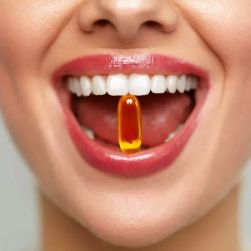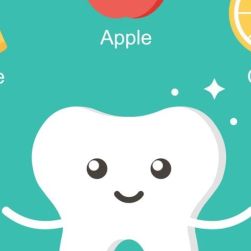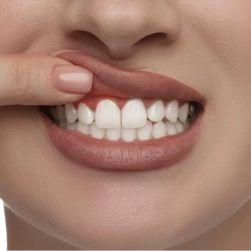When it comes to maintaining good oral health, the conversation often revolves around proper brushing and flossing techniques. However, diet plays an equally pivotal role. Particularly, calcium and vitamin D are essential nutrients that significantly impact dental health. Understanding their roles can empower you to make informed nutritional choices that promote strong teeth and gums. In this article, we'll explore how these nutrients benefit your oral health, with a focus on their importance for American audiences.
The Role of Calcium in Oral Health
Calcium is a fundamental mineral for building strong bones and teeth. It comprises a large portion of tooth enamel and dentin, which are critical for protecting teeth against decay. According to the National Institutes of Health (NIH), adequate calcium intake is essential to maintain bone density and prevent dental issues like tooth loss.
Studies show that individuals with low calcium levels are at a higher risk of developing periodontitis, a severe gum disease. The American Dental Association (ADA) also emphasizes that adequate calcium is necessary from childhood through adulthood to ensure proper tooth development and maintenance. Dairy products, leafy greens, and fortified foods are excellent sources of this vital mineral. Incorporating these into your diet helps replenish calcium levels, supporting a resilient oral and bone structure.
Vitamin D: The Sunshine Vitamin's Impact on Oral Health
Vitamin D is crucial for calcium absorption. Without it, your body cannot adequately utilize the calcium consumed, leading to deficiencies that can affect bone and dental health. The Centers for Disease Control and Prevention (CDC) highlights that vitamin D deficiency is prevalent in the U.S., often due to limited sun exposure and dietary intake.
Beyond calcium absorption, vitamin D has anti-inflammatory properties that can help reduce the risk of gum diseases such as gingivitis. Research published in The Journal of the American Dental Association suggests that sufficient vitamin D levels can lower the risk of jawbone loss, which is integral in supporting teeth. To boost your vitamin D levels, consider spending time in the sunlight, consuming fatty fish, and using fortified products such as milk or supplements.
The Synergy Between Calcium and Vitamin D
Calcium and vitamin D work hand in hand to bolster oral health. This synergy is vital because while calcium strengthens teeth, vitamin D ensures that your body can absorb and use the calcium efficiently. The two nutrients complement each other, creating a robust defense against oral diseases.
Harvard Health Publishing explains that a deficiency in either nutrient can compromise dental health, leading to conditions like osteoporosis of the jaw and increased susceptibility to cavities. For optimal oral health, it's imperative to maintain a diet balanced in both calcium and vitamin D, ensuring their combined effect supports your oral structure.
Dietary Sources and Recommendations
To achieve the benefits of calcium and vitamin D, it's vital to incorporate a variety of dietary sources into your meals. For calcium, focus on consuming dairy products, almonds, tofu, and fortified plant milk. For vitamin D, prioritize fatty fish such as salmon, tuna, and fortified cereals.
The Dietary Guidelines for Americans and the American Heart Association recommend that adults aim for 1,000 to 1,200 mg of calcium per day and 600 to 800 IU of vitamin D. Adjustments might be necessary based on individual health needs, so consulting with a healthcare professional is advisable.
Practical Tips for Enhancing Oral Health with Calcium and Vitamin D
- Increase your intake of dairy or plant-based alternatives for calcium.
- Engage in outdoor activities to boost vitamin D production naturally.
- Consider supplements if dietary sources fall short, but consult your doctor first.
- Regularly visit your dentist to monitor your oral health.
In summary, calcium and vitamin D are indispensable for maintaining optimal oral health. By understanding their roles and incorporating them effectively into your diet, you can bolster your dental defenses. Remember, a healthy diet is as crucial as regular dental care in preventing oral diseases. For more insights on maintaining oral health, visit the Dentistry Toothtruth homepage.






